FIRST Lt. Dennis Chamberlain always knew that he wanted to join the Army and carry on his family's legacy of military service-he just didn't know quite how long or how famous that family legacy was.
You may be wondering, Chamberlain' Famous' Does she mean the Chamberlain' Brevet Maj. Gen. Joshua Lawrence Chamberlain of Civil War fame' That Chamberlain' (Brevet signifies an officer who has been authorized a temporary, higher rank, usually without higher pay.)
Chamberlain was asked these questions over and over again during Officer Candidate School, and when he finally broke down and asked his father, a Vietnam veteran, if they were related to the Medal of Honor winner, he was surprised to find that the answer was "yes."
"It was a huge surprise," the Arizona National Guard Soldier said. "I had this long family lineage that I didn't really even know about. I got my dad to kind of open up about a lot of the family traditions of military service.
"It's something that I've always kind of had as motivation in my own heart that I've had this many who have served in my family. It provides unique inspiration and pride."
Chamberlain isn't sure how many "greats" there are between him and the general, but he said he is a direct descendant, and that his family's legacy of service stretches even further back, to the Revolutionary War. In fact, Chamberlain has had a relative in almost every American conflict for the past 230-plus years. "I'm Lieutenant Dan," he quipped about the "Forrest Gump" character who had ancestors in every war. Of course, they all died, while most of Chamberlain's relatives lived.
One of his mother's ancestors, Jacob Snider, was a surveyor with George Washington just prior to the Revolution, and after the war began, accepted a commission in the Continental Army.
Chamberlain didn't mention them, but according to Michael Golay's "To Gettysburg and Beyond: The Parallel Lives of Joshua Chamberlain and Edward Porter Alexander," Joshua Chamberlain also had great-grandfathers who served in the Revolution-one of them was at the Battle of Yorktown-and a grandfather who was a militia colonel during the War of 1812. Joshua's father also served during the Aroostook War in 1839, which was essentially a cold war between the U.S. and Great Britain over the Maine-Canada border. The general's brothers served in the Civil War as well.
Another of Chamberlain's distant grandfathers was killed during World War I after volunteering for a high-risk mission to carry intelligence back from the trenches. Chamberlain's great-grandfather and grandfather were both in the Navy, and his grandfather, Dwight Lawrence Chamberlain II, was permanently injured during one of the USS Yorktown's World War II battles.
Various other great-uncles and uncles served during the Korean and Vietnam Wars. His father was in basic training during the Cuban Missile Crisis. That training suddenly sped up during the standoff, and his father eventually deployed to Vietnam.
Chamberlain said his father's experiences in Vietnam made him concerned for his son when Chamberlain enlisted on the first day he was eligible at age 17. One of Chamberlain's brothers had died as a child, and his father was naturally worried.
"I don't think he wanted (war) to change me. War inevitably changes you. He was just worried how it was going to affect me, and also worried about me coming home, because in the infantry we tend to be placed in dangerous situations. Your parents just worry about you and want to make sure you come home," Chamberlain explained.
Chamberlain's wife, Jennifer, is a private first class in the Army Reserve. During his 2007 deployment to Afghanistan, he said Jennifer decided to go back to school to become an X-ray technician. It turned out that there was a long waiting list for school, but the Army had an expedited program.
"I thought, 'Why in the world would she want to be a Soldier''" said Chamberlain. "She's seen me go through everything from kinetic operations and combat to the missed birthdays and anniversaries. I just never thought that that was something that she would want to pursue. She talked with me about the advantages and disadvantages and it seemed like it was a viable plan. God knows that she's supported me through thick and thin, and I thought it was my turn to support her."
The Chamberlains have three young daughters, and are concerned they might eventually have to deploy at the same time. Fortunately, Chamberlain's parents are very involved in their lives and available to help out.
That came in handy in 2007 after Chamberlain left for Afghanistan, and his wife heard he received some minor injuries during a clearing operation. His convoy came under fire and a rocket-propelled grenade exploded nearby, injuring Chamberlain and two of his Soldiers. He eventually received the Purple Heart, but the injuries were minor enough that they patched themselves up and continued with the mission.
On another occasion, Chamberlain and his men had to come to the rescue of some dignitaries with familiar names: Sens. John Kerry and Chuck Hagel, and then-Sen. Joe Biden. Chamberlain's unit had been providing security for provincial reconstruction teams and special operations, and received an emergency call that Maj. Gen. David Rodriguez, commander of the 82nd Airborne Division, was stranded in the mountains.
When they met up with an 11-vehicle Secret Service convoy, Chamberlain figured something was up, but it wasn't until he was en route that he found out three senators were stuck in a bad blizzard with some insurgents nearby.
"We linked up with them and got security in place," he said. "From there, I pushed out the Secret Service vehicles and one of my heavy squads to provide security for them heading down the mountain. Some insurgents came up on them and we got them out of there and from there to Turkey."
The mission was an entry on his Bronze Star citation, and although it has garnered Chamberlain some attention, he cautions that it was just one mission among many and he was only one man on that mission.
"I was just one person in a great group of guys who made me look good," he said. "It was their individual actions that brought us together as a team, that made us such a great fighting force. It was a National Guard infantry called on to rescue some of probably the most important people on the ground in Afghanistan. It was our team who was called on to do great things, more than just rescuing the senators and the vice president."
But in times of stress and high op-tempo, Chamberlain said that he does sometimes think about what Joshua Chamberlain or some of his other forefathers would do.
"We've had a few books that have been written by family members that I've read, and biographies and stuff," he said. "I actually think I have a lot of the same characteristics. Especially General Chamberlain. He was written about a lot-a very aggressive, charismatic leader. I've been accused of being very aggressive.
"In my own defense, I think my aggressiveness is one of the major reasons that I was able to bring all my guys home alive," he explained. "They put the enemy on their heels. And I have to say, his aggressiveness in Gettysburg was absolutely pivotal in the momentum of that battle. I would say sometimes I think about it, but most of the time, you just react on your training and what you've learned all through the schools you've gone to in the military and your life's lessons growing up. That's what you bank on in the heat of the battle."
All three of Chamberlain's daughters are under age 10-too young to understand their family history just yet. But when they're older, Chamberlain said he plans to make sure they know about their famous ancestor and the family's legacy of service.
Who is Joshua Chamberlain'
BORN in 1828, Joshua Lawrence Chamberlain was a professor at Bowdoin College in Maine when the Civil War began in 1861. Granted a sabbatical, he enlisted in the 20th Maine Regiment, where, although he had no previous military experience, Chamberlain was commissioned as a lieutenant colonel.
Held in reserve during the Battle of Antietam, Md., in 1862, Chamberlain and his unit saw their first action at the Battle of Fredericksburg, Va., and spent a freezing night in the open with wounded Soldiers, using bodies of the fallen for shelter.
"It was a cold night," he wrote in his autobiography. "Bitter, raw north winds swept the stark slopes...Necessity compels strange uses. For myself, it seemed best to bestow my body between two dead men among the many left there by earlier assaults, and to draw another crosswise for a pillow out of the trampled, blood-soaked sod, pulling the flap of his coat over my face to fend off the chilling winds, and, still more chilling, the deep, many-voiced moan that overspread the field. It was heart-rending."
Chamberlain was promoted to colonel of the regiment in 1863, and it was that July that his famous charge took place at the Battle of Gettysburg, Pa., the bloodiest battle of the war with more than 50,000 casualties.
Sent to defend Little Round Top-both the high ground and the location of a Union signal station-the 20th Maine was at the far left of the Union line. They endured numerous charges from the Confederates until their line almost doubled back on itself and ammunition almost ran out. Casualties were heavy.
Chamberlain ordered his men to "fix bayonets" and charge toward the Confederates. The left wing wheeled back and forth to both flank and assault the enemy.
"One word was enough-'BAYONET!'-It caught like fire and swept along the ranks," Chamberlain recalled. "The grating clash of steel in fixing bayonets told its own story; the color rose in front; the whole line quivered for the start; the edge of the left-wing rippled, swung, tossed among the rocks, straightened, changed curve from scimitar to sickle-shape; and the bristling archers swooped down upon the serried host-down into the face of half a thousand! Two hundred men!
"Ranks were broken; many retired before us somewhat hastily; some threw their muskets to the ground-even loaded; sunk on their knees threw up their hands, calling out, 'We surrender. Don't kill us!' As if we wanted to do that! We kill to resist killing."
Chamberlain's men captured so many Confederates that they were outnumbered two to one and the Union eventually carried the day. Chamberlain received the sobriquet "Lion of the Round Top" and later, the Medal of Honor.
The following June, during the siege of Petersburg, Va., Chamberlain was shot in the right hip and groin. Before passing out, he jabbed his sword into the ground and held on to keep himself upright for several minutes to discourage calls for retreat. Army surgeons believed it was a mortal wound and Chamberlain's death was reported in Maine newspapers and to Lt. Gen. Ulysses S. Grant, who promoted Chamberlain posthumously, or so he believed, to brigadier general.
Given an early version of a catheter, Chamberlain lived, but faced infections and revision surgeries for the rest of his life, and eventually died from complications of the wound in 1914. Nevertheless, he returned to duty about five months later in November 1864. In March 1865, his new unit, the 1st Brigade of the 1st Division of V Corps, participated in a major skirmish during Grant's final advance in Virginia. Chamberlain was almost captured and was brevetted to the rank of major general.
A few days later, on April 12, 1865, he was given the honor of presiding over the parade of Confederate infantry during their surrender at Appomattox Court House, Va. As the vanquished enemy marched down the road, Chamberlain honored their bravery by ordering his men to shoulder their arms, and salute them.
"This was the last scene of such momentous history that I was impelled to render some token of recognition; some honor also to manhood so high," Chamberlain later recalled. The Confederate Gen. John Gordon rose in his saddle and returned the salute.
After the war, Chamberlain served as governor of Maine, and later as the president of his alma mater and former employer, Bowdoin College. Despite old age and ill health, he tried to re-enlist during the Spanish-American War in 1898, but was rejected for duty.
Editor's note: Information for the above biography comes from "Bayonet! Forward: My Civil War Reminiscences," by Joshua Lawrence Chamberlain and "Joshua Chamberlain: A Hero's Life & Legacy," by John J. Pullen.

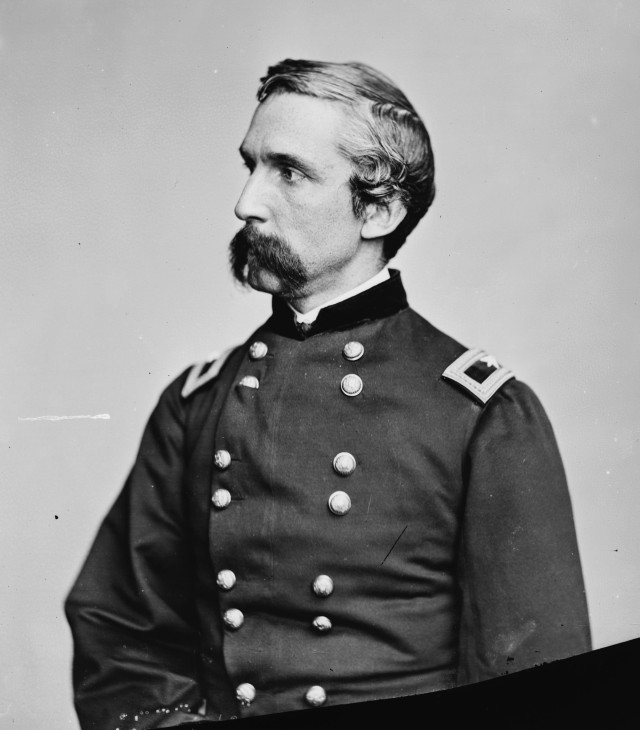
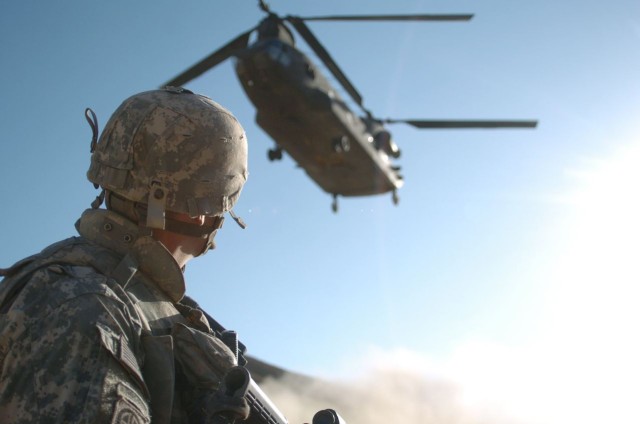
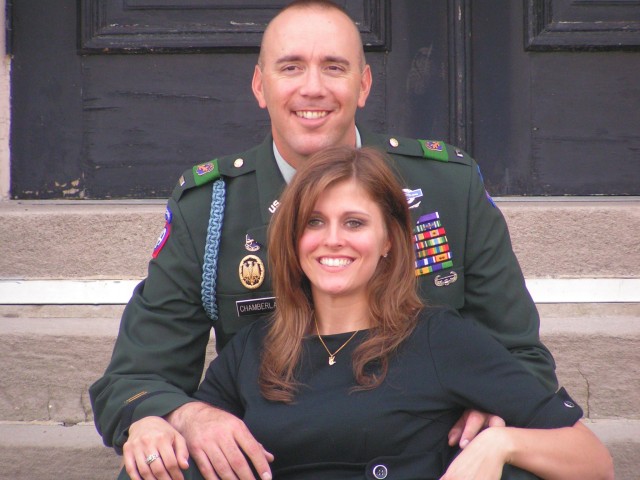
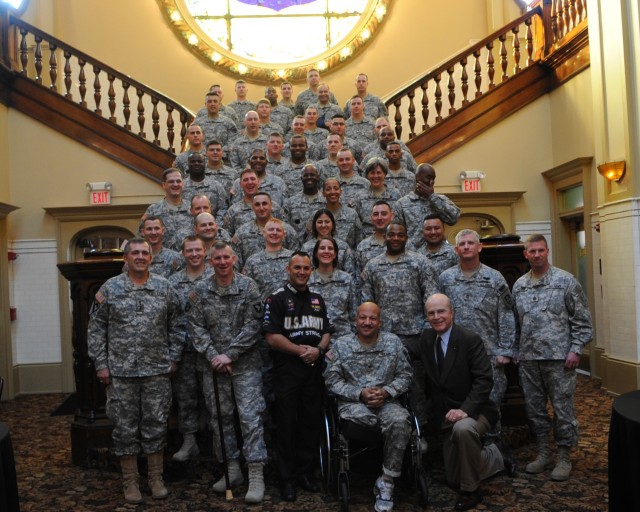

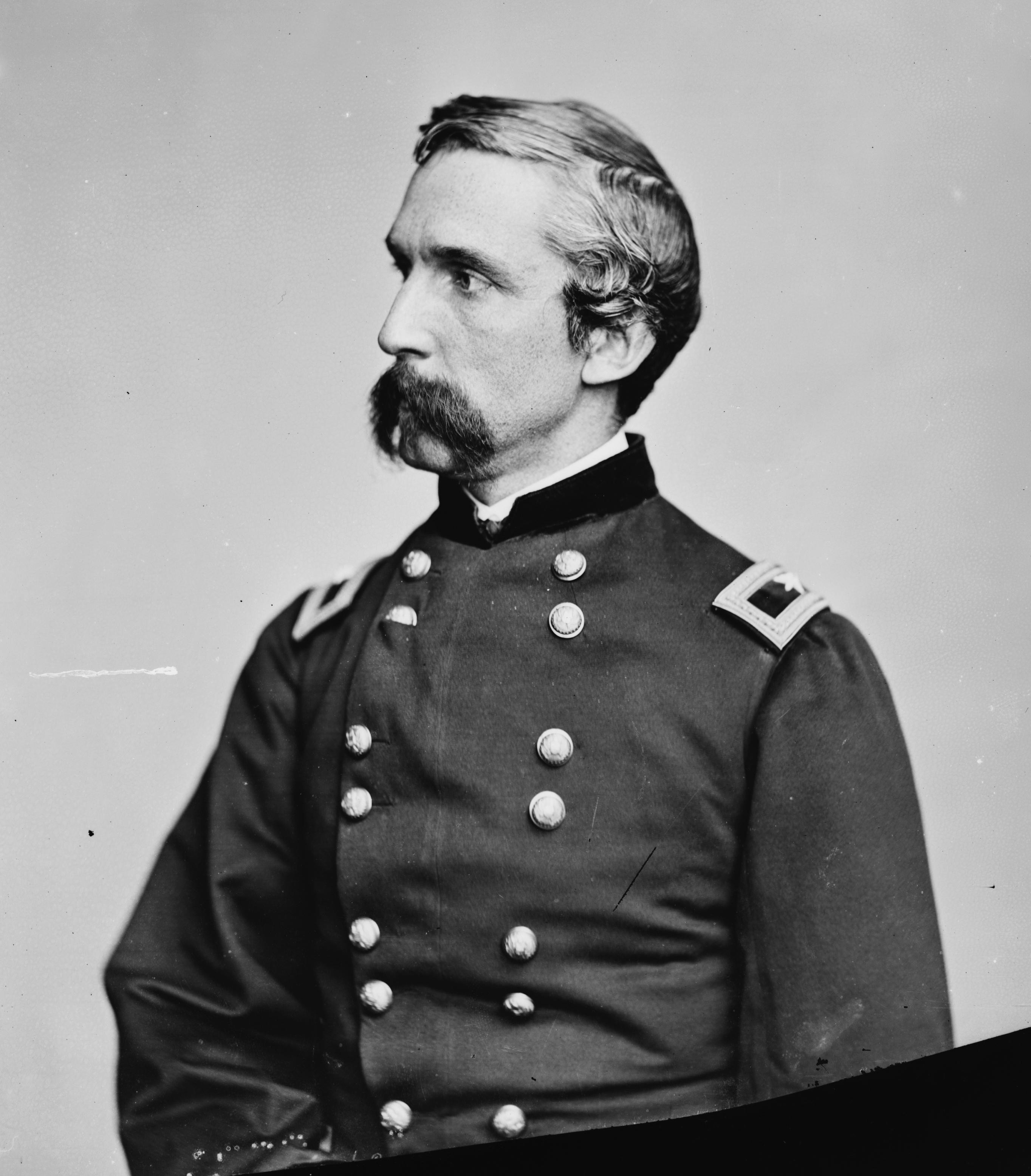

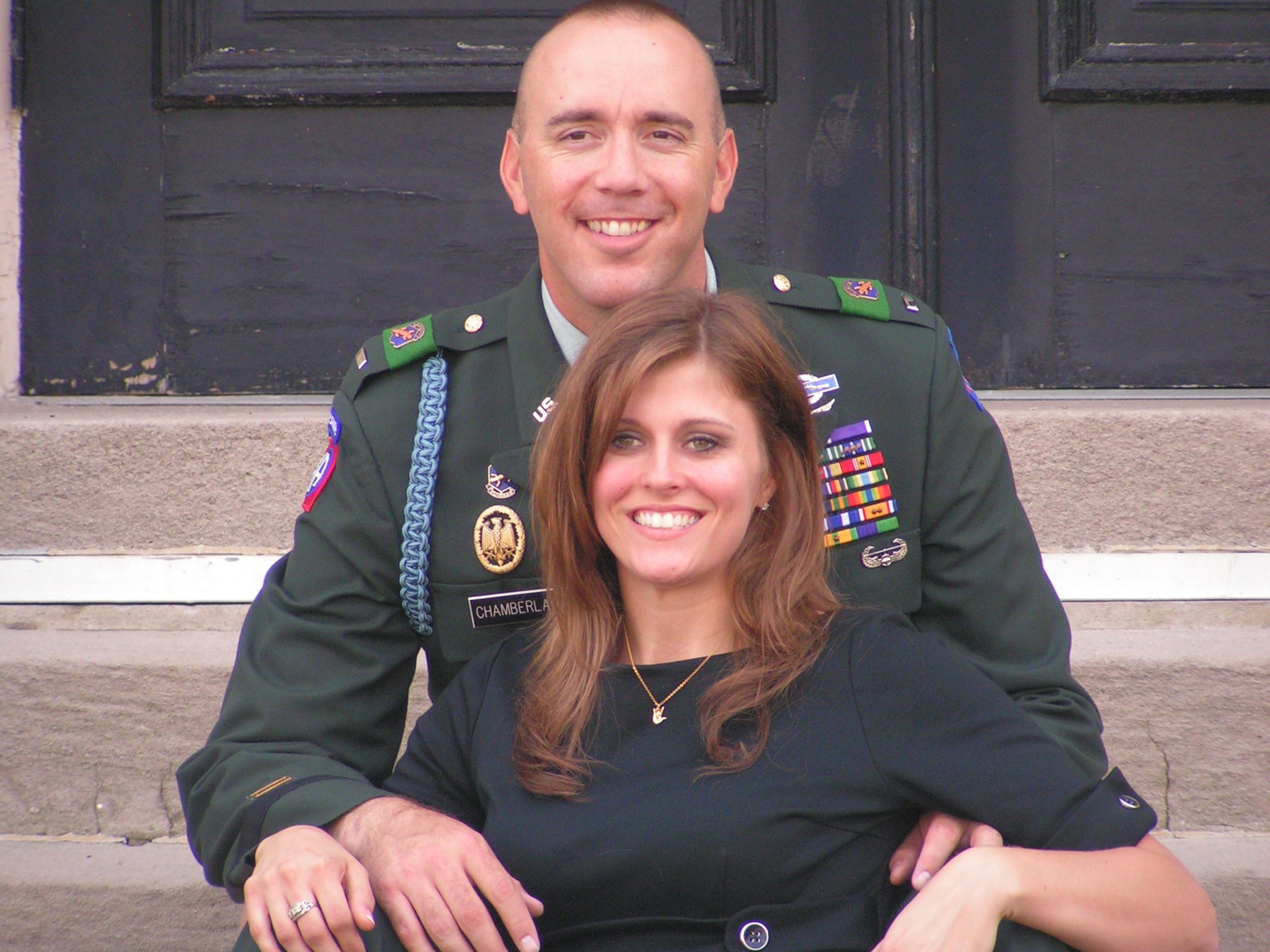
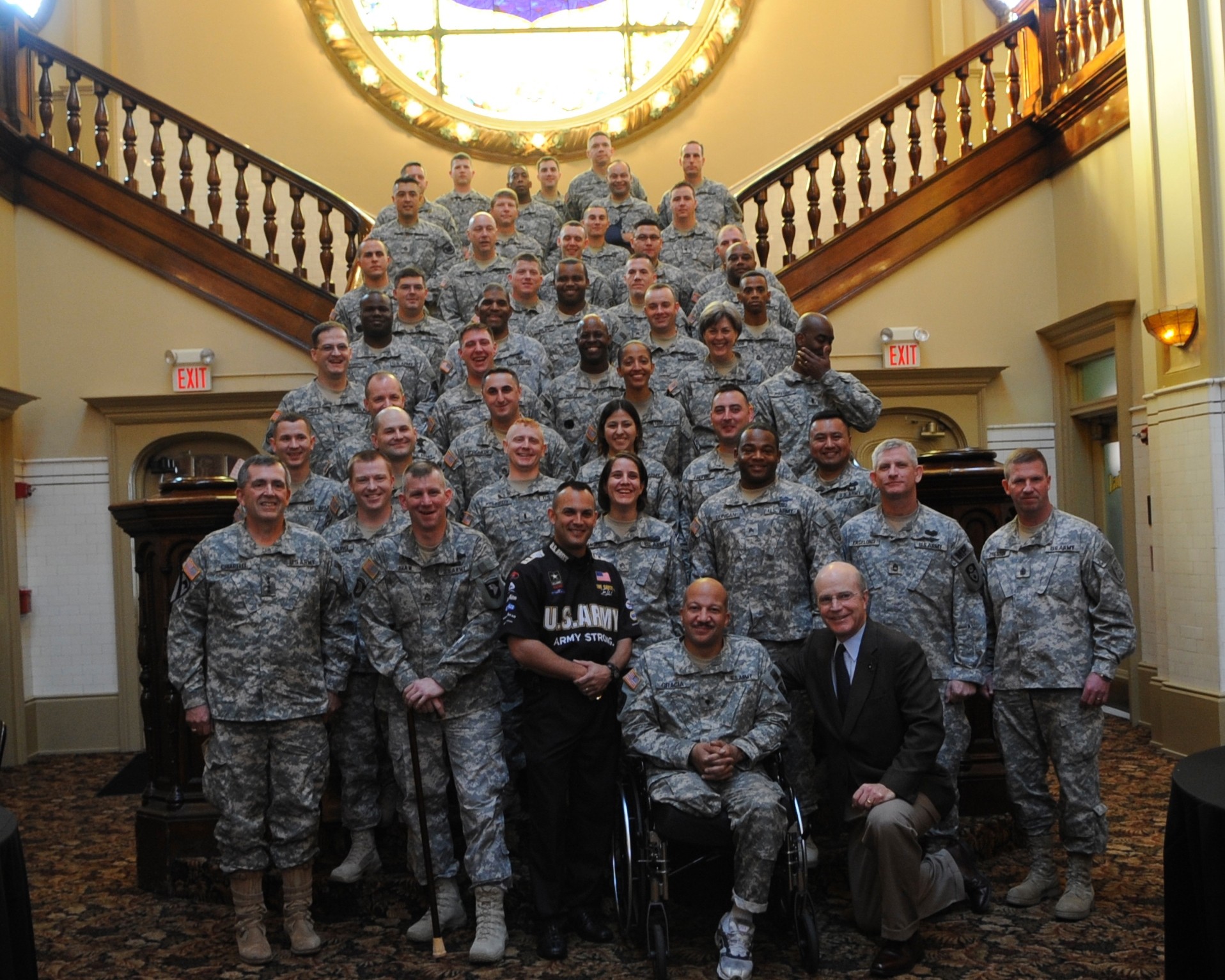
Social Sharing